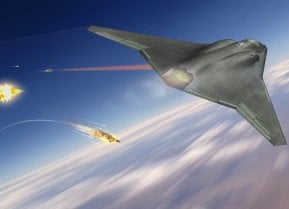Two Turbulent Musketeers: Russia & North Korea’s Alliance-Building
Ever since Russia’s invasion of Ukraine in February 2022, North Korea’s support for its former Cold War patron has evolved dramatically, from expectedly sending words of support to Russia to a less anticipated cash-for-ammunitions exchange, and the recent signing of a comprehensive strategic partnership treaty between Vladimir Putin and Kim Jong Un this June.
Ever since Russia’s invasion of Ukraine in February 2022, North Korea’s support for its former Cold War patron has evolved dramatically, from expectedly sending words of support to Russia to a less anticipated cash-for-ammunitions exchange, and the recent signing of a comprehensive strategic partnership treaty between Vladimir Putin and Kim Jong Un this June. Although North Korea has referred to the relationship as an alliance; the Russians, for now, prefer the term partnership. That said, the treaty’s mutual defense clause was significant, pledging the two states to offer mutual assistance, the nature of which remains unspecified, in the event of any external attack.
The revived relations between these two rogue states underscore how Moscow and Pyongyang care little about their respective global reputations. Russia’s low levels of international legitimacy, pre-war, have been eroded even further. Even though the roots of North Korea’s turn to Russia, and vice versa, are founded upon North Korea’s ability to fulfill an isolated Russia’s need for artillery to use against Ukraine, the relationship has gone beyond a mere transactional exchange.
With Russia’s support, North Korea has been able to reduce the United Nations Security Council to its most impotent state since the inception of the organization in 1945, with the institution unable to constrain any sanctions violations on the part of both states, let alone issue statements of condemnation. Moreover, with Russia’s provision of oil to North Korea, Pyongyang has thus been able to devote greater resources to focus on expanding its nuclear and missile capabilities, which Kim Jong Un has already pledged to increase exponentially.
Even if the Ukraine War were to end soon, or if the Russian industrial sector does become able to produce munitions indigenously, relations between North Korea and Russia will likely not sink to rock bottom immediately. If Putin decides to further his expansionist aggression, he knows that North Korea will be there as a reliable supplier of, albeit not always reliable, artillery. Russia may have abandoned North Korea at the end of the Cold War, but even if mutual ties weaken in a post-Ukraine world, we cannot discount the continued transfer of advanced Russian missile technology and expertise to North Korea.
Despite Xi Jinping meeting Putin in 2023, and the two leaders pledging a significant upgrade in Russia-China ties, China has been saying little vis-à-vis the Russia-North Korea rapprochement. Unlike Russia, China cares about its international reputation, and Beijing will not be pleased by Kim Jong Un’s repeated claims, over the past year, that Moscow is Pyongyang’s number one friend, not least given how China remains North Korea’s largest economic trading partner.
It would be naïve to treat the interests of China and Russia as homogenous, but where China, Russia, and North Korea, do align is in their opposition to U.S. hegemony. China has repeated Russia’s claims about its desire to create an “alternative” global order to that led by the United States. What is more, China does support North Korea’s opposition towards the United States and continues to deride the U.S.’s alliances in Northeast Asia, coupled with regional fora, such as the Quadrilateral Security Dialogue (QUAD), as malign “anti-China” forces.
On the part of all three states, this ideological opposition to the U.S.-led global order is likely to be sustained even if any so-called trilateral military exercises, as suggested by then-Russian Defence Minister, Sergei Lavrov, in 2023, look highly unlikely.
The United States should continue to reassure its regional allies, namely South Korea and Japan, of its commitment not only to deter North Korea but also to do its utmost to disrupt the burgeoning cooperation between Russia and North Korea. History tells us that North Korea is certainly no stranger to engaging in clandestine networks of weapons cooperation, whether nuclear or otherwise, with other rogue states.
South Korea will also need to reconsider its reluctance to provide arms directly to Ukraine, not least given North Korea’s growing provocations against the South, and, too, the fact that beyond 152mm artillery, North Korean ballistic missiles are also being used in Russia’s ongoing war.
About the Author: Edward Howell
Edward Howell is a Departmental Lecturer in International Relations at the University of Oxford; a Korea Foundation Fellow at the Royal Institute for International Affairs (Chatham House), London; and a Research Fellow with the Pharos Foundation. His recent book, North Korea and the Global Nuclear Order, was published by Oxford University Press in 2023. Edward frequently offers analysis and commentary for national and international media, including The Spectator, The Telegraph, The Times, as well as BBC News, Sky News, and CNN.
Image Credit: Creative Commons and/or Shutterstock.


